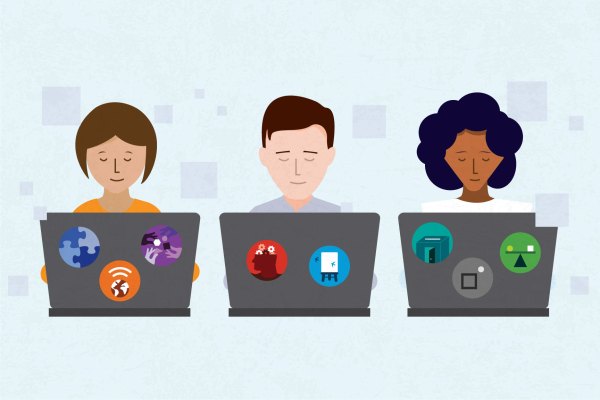
Ford Foundation is helping develop a path for people to use their technology skills for the public good. Learn more about Public Interest Tech.
When I was working on my undergraduate degree in computer science, I also ran my university’s chapter of Amnesty International. I was passionate about both technology and human rights, but I didn’t see a way for these two paths to cross once I got out of school. I imagined a future where I spent my days coding, and my evenings organizing.
Early in my career, though, I realized that this kind of separation between my passion and my profession wasn’t going to work for me. I needed to find a way to marry the two—and after a few years’ experience working as a computer scientist, I saw that it should be possible. One of the great things about tech skills—like digital design or coding—is that they’re broadly applicable; they don’t belong to any one field. Early in grad school I learned about how computer science had been used to shed light on important human rights issues, like Patrick Ball’s work using data analysis to reveal patterns of genocide in conflict zones. These stories were few and far between, but it was becoming clear to me that my knowledge and skills could be really useful to the social justice work I cared so much about.
When I told my computer science peers and teachers that I was interested in using my skills toward positive social change, I was met with confused looks and blank stares. It was dispiriting, but I wasn’t the only one who saw a problem. From nonprofit organizations to foundations to government agencies like the Federal Trade Commission, other people had started to realize that in the 21st century, effective advocacy for the public interest requires ready access to people with tech expertise. In other words, these institutions need to employ tech experts in house and on staff.
We call this idea Public Interest Tech, but it goes by many other names as well: Technology for Social Justice, Civic Tech, ICT4D, Crisis Mappers—and the list goes on. And there are many ways to use technology skills to fight for the greater public good. For a great overview of this field and the opportunities and challenges associated with it, check out this scan from Technology for Social Justice.
Public Interest Tech is about more than technology
The Ford Foundation has a legacy of helping different professions recognize how they can contribute to the public interest, and building fields to help them do it, as with the field of public interest law. The field of public interest tech brings people with specific technical expertise into the fight for social change: whether that means ensuring that biased algorithms don’t further prejudice the criminal justice system, understanding how marginalized communities are negatively impacted by “smart” technology, or examining the future of work as artificial intelligence and the gig economy upend the traditional rules of the economy. Since technology affects nearly every aspect of our lives and the world around us, the opportunities for technologists to put their skills to work for the public interest are endless.
When I think of people who drive Public Interest Tech, I think of Matt Mitchell, who understands how digital security and racial justice are deeply intertwined. I think of Cathy O’Neil, who shows us how, if we’re not careful, big data can be destructive—and then offers insights to help us avoid that fate. I think of Mimi Onuoha, who explores how missing data can be just as powerful as big data in pointing to the challenges of inequality in our society. I think of Chris Soghoian, who has brought his technical expertise on privacy issues to the Federal Trade Commission and the US Senate.
Accessibility Statement
- All videos produced by the Ford Foundation since 2020 include captions and downloadable transcripts. For videos where visuals require additional understanding, we offer audio-described versions.
- We are continuing to make videos produced prior to 2020 accessible.
- Videos from third-party sources (those not produced by the Ford Foundation) may not have captions, accessible transcripts, or audio descriptions.
- To improve accessibility beyond our site, we’ve created a free video accessibility WordPress plug-in.
But we are still in the early days of Public Interest Tech. We need the infrastructure to support its growth and ambition, and to ensure that there are opportunities for the increasing number of people looking for work that allows them to use their expertise in the service of justice and the common good. We have job boards, fellowships, and an increasing number of organizations seeking out tech expertise. But there is more to be done.
Everyone has a stake in Public Interest Tech
As we work to build and expand this field, we’re also working to draw attention to it. We’re spreading the word about #PublicInterestTech, to show people that it’s a field ready for their contributions, and a community eager for their ideas and skills. The more people know about Public Interest Tech, the greater demand there will be for jobs in the field as well as the services it is uniquely equipped to provide—and the faster public interest technologists will be a serious force for the public good. (And a force to be reckoned with.) That’s good for all of us, from those of who are immersed in Twitter all day, to those who only go online occasionally to read the news.
So help us spread the word! Contribute your talents, tell your friends and colleagues—and especially, tell the younger people you know, who are poised to make this field grow in a big way. Together, we can build a dynamic field dedicated to using technology to serve the public good and change the world for the better.



